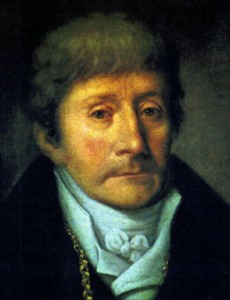Salieri, Antonio (1750-1825)

La passione di Jesu Cristo
Pietro “Se a librarsi in mezzo all’onde”,
Tenor, solo bassoon, oboes, horns, strings.
Österreichiche Nationalbibliothek, Wien
(Mus.Hs.19118.Mus & Mus.Hs.16422.Mus.)
Published by Edizione Suvini Zerboni Milano ESZ. 11651, pp 197-206.
Published by Carus Verlag 10245 etc.
CD Spering, Köln, Capriccio 60 100 CD 2, track 12.
http://www.classicsonline.com/catalogue/product.aspx?pid=712597
YouTube:
httphttp://www.youtube.com/watch?v=mQuK7wf3-aw&feature=related (+1.40 min)
http/www.youtube.com/watch?v=lqwgoQxp-N4 (+1.48 min)
http://www.youtube.com/watch?v=eK9XYIckVyU
http://www.youtube.com/watch?v=HZ6HCYHcRTU
At least four composers wrote bassoon obbligati for tenor
arias in their settings of Metastasio's La Passione di Jesu Cristo.
Naumann and Salieri wrote obbligati for the same Pietro text:
“Se a librarsi in mezzo all’onde incomincia il fanciulletto”
Paisiello: Giovanni: “Dovunque il guardo giro”
Lucchesi: Giuseppe: “Torbido mar che freme”,
Le donne letterate
Artemia “Astrea nel cor mi siede”
Soprano, flute, oboe, bassoon, horns, strings – trio obbligato for fl, ob, bn.
(A-Wn Mus.Hs.17833)
*La sconfitta di Borea, 1775
Corilla “Vedo l’amiche insigne”
Soprano, flute, oboe, bassoon, horns, strings - trio obbligato for fl, ob, bn.
(A-Wn Mus.Hs.16424.2 Mus)
*Semiramide “Sento l’amica speme”
Soprano, flute, oboe, bassoon, horns, trumpet, strings - trio obbligato for fl, ob, bn.
(A-Wn Mus.Hs.16605)
CD Diana Damrau, Arie di Bravura, Virgin Classics 0946 3 95250 2 7, track 10
YouTube: http://www.youtube.com/watch?v=w5MSoOuf9tA
*These two arias are similar
La Grotta di Trofonio
Cavatine “Vieni, o Maestro, e duce!”
Bass with two english horns and bassoon, or two clarinets and bassoon,
or in another version, two bassoons and continuo.
The two former versions are sung by Plistine in F major, the
version with two bassoons is sung by Arteminio in G major.
The Vienna score A-WnKT194 has the first notation Clarinetti crossed out and replaced
by Corni inglesi. The Dresden score D-Dl Mus.3796-F-506 has the same version for clarinets.
Both these scores are available on-line http://www.opernprojekt.uni-koeln.de/
In the version with two bassoons (A-Wn Mus Hs. 16192), doubling flute parts two octaves
higher have been crossed out in pencil.
CD Les Talens Lyriques, Rousset, 2005, CD 1, track 22 (with english horns)
All five Salieri works are held at Österreichiche Nationalbibliothek, Wien
(See John A Rice: Antonio Salieri and Viennese Opera,
Univ of Chicago Press 1998. pp.144-8, 250-3, 540-1.)